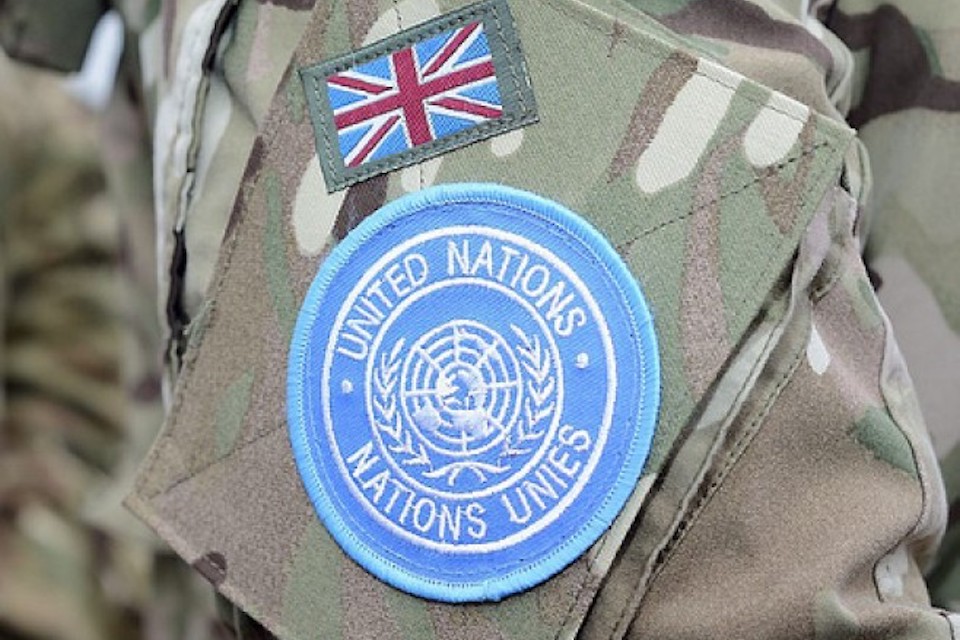Training peacekeepers at the highest standards
Statement by Ambassador Karen Pierce, UK Permanent Representative to the UN, at the Security Council open debate on peacekeeping, training and capacity building

Thank you very much indeed, Madam Minister and thank you for being back in New York. Very nice to see you again. And I join others in welcoming Indonesia for focussing this debate on this really important issue and also pay tribute to your country for your country’s role in UN Peacekeeping. And thank you obviously to the General and to Dr Holmberg for their briefings.
Madam President, the United Kingdom is proud to be one of the first Member States to endorse a declaration of shared commitments in support of the Secretary-General’s Action for Peacekeeping. Providing peacekeepers with comprehensive and high quality training will help them deliver across all the other pillars of that ambitious – but rightly ambitious – agenda. And as other speakers have said, the better trained the peacekeepers are, the better prepared they would be to perform to the highest standards. And that will also include ensuring their own safety and security. And as you alluded to, many of us attended that moving memorial ceremony yesterday, which was a stark reminder of the dangers that UN peacekeepers face on a daily basis. And of course better training will mean that peacekeepers are better equipped to meet the challenges of unpredictable and complicated, complex, multidimensional mission environments.
I’d like to say a few words about performance. Of course peacekeepers should all meet required standards in basic military or policing skills – the so-called ‘green skills.’ But we believe that the best performing peacekeepers are those who are also well-versed in ‘blue skills’ such as protection of civilians, prevention of sexual exploitation and abuse and compliance with international humanitarian law and human rights’ law.
Madam President, the United Kingdom recognises that like all troops and police contributing countries: we bear the responsibility for training and equipping our uniformed personnel. And if we fail to prepare them to perform to the highest standards in the field, we not only failed them but we also failed the civilians who they have been deployed to protect. So if any Member State fails in this respect, we believe it is right that they should be held accountable for failure and should learn all the necessary lessons from it. In this context, my Government reiterates its support for the Secretary-General’s development of an integrated performance policy framework. And I’d like to underline the importance of robust pre-deployment verification visits, to ensure that uniformed personnel are fully prepared for their missions.
Lieutenant General Filho’s briefing mentioned the important issue of reporting of contingent performance issues to UNHQ by field missions. I’d like to just use this occasion, if I may, to urge the Secretariat to provide this Council with regular updates on such issues and what remedial action is to be taken in the interests of transparency and accountability and as set out in Security Council resolution 2436 from last year.
Madam President, I’d like to say a word about partnerships. Each Member State brings invaluable experience and expertise to peacekeeping so more effective and efficient sharing of insights, lessons learned and best practices helps us all. To that end, we support the Secretary-General’s initiative to develop and light coordination mechanism in concert with the UN Strategic Force Generation Cell and a range of Member States, which will match training needs with training offers. And it is why we were very pleased to co-host the preparatory meeting on training and capacity building with Uruguay ahead of 2019’s Peacekeeping Ministerial.
For our part, we will continue our efforts to better align our training and capacity building efforts with the needs of our partners. The United Kingdom trains some 11,000 peacekeepers from around the world each year. We were proud to work with Vietnam ahead of their first contingent deployment to South Sudan in 2018. We supported Vietnam’s efforts to train and prepare their peacekeepers to take over the Level Two field hospital at Bentiu.
Madam President, to conclude, the men, women and children, who we ask our peacekeepers to protect, should be able to trust that anyone in a blue helmet or a blue beret is ready, willing and able to deliver and necessary defend the mandate set by this Council. And our peacekeepers should be able to trust that before they are sent into some of the world’s most difficult conflicts, they will be trained and equipped to the highest possible standard. For the United Kingdom, we remain committed to meeting these standards in our own deployments and to partnering with other Member States to help them achieve these goals.